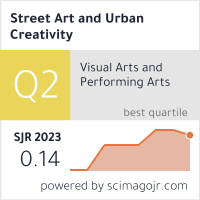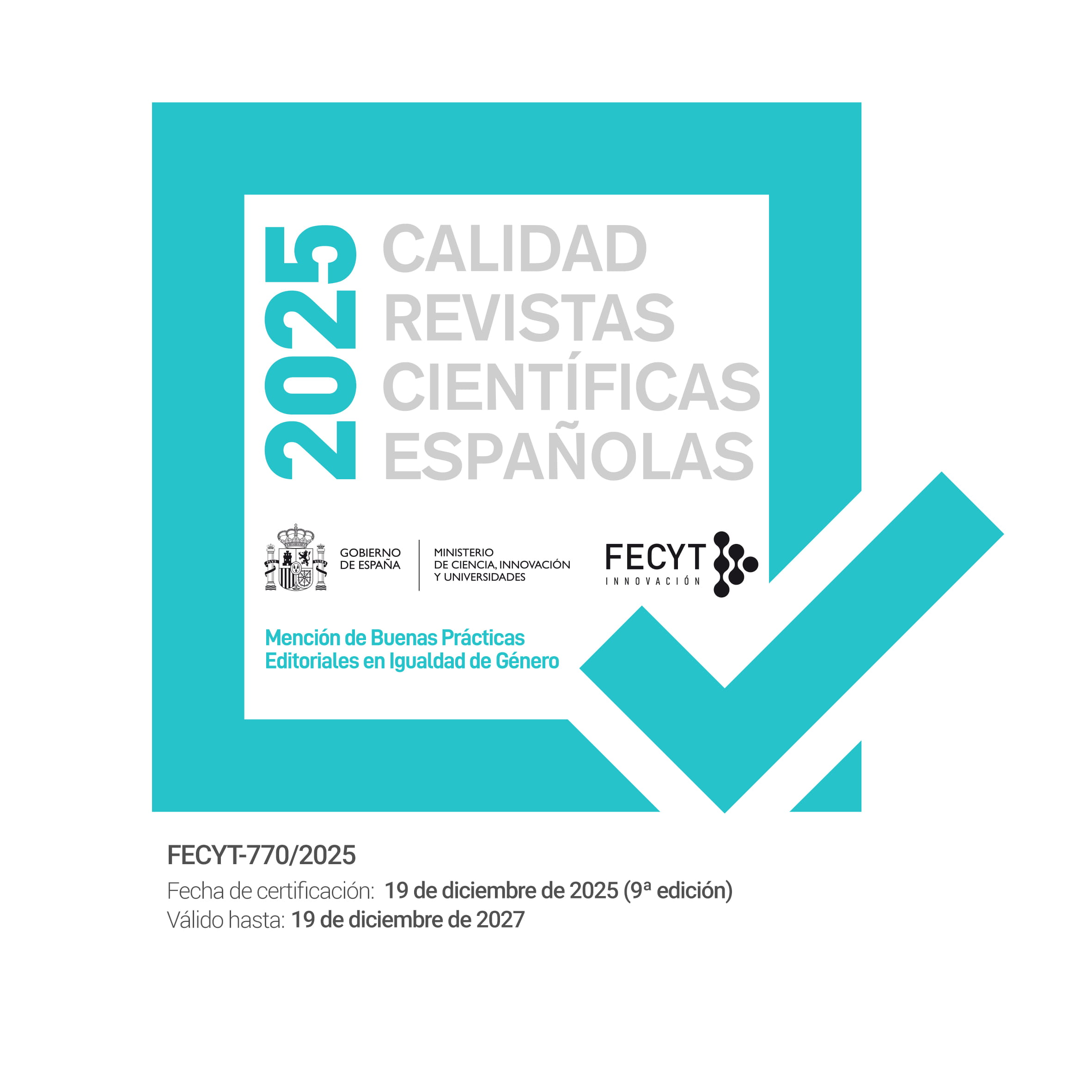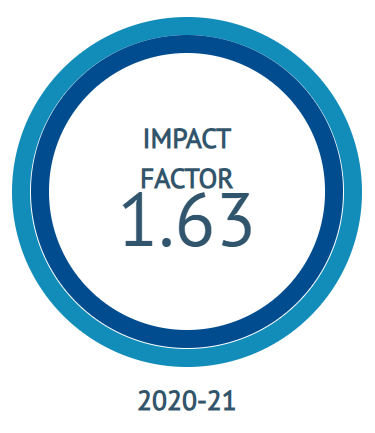Essential Digital Competencies for the Citizen Empowerment of Older Adults
DOI:
https://doi.org/10.25765/sauc.v11.5680Keywords:
Older adult, Digital competencies, Empowerment, CitizenshipAbstract
The objective of this article is to identify the essential competences for empowering the senior collective by guaranteeing their digital citizenship. A methodological triangulation is proposed based on a systematic review of the literature, a participant observation with 45 older adults, users of the Canal Sénior platform, and an open qualitative survey applied to 24 of these subjects. The results reflect the priority of strengthening three competences: Digital safety; digital communication; and management of health information available online. These findings show the scarcity of training for the development of a critical use of technologies by older adults. The change in the ways of communicating and accessing information requires meeting the demand of seniors with new knowledge and skills. This study provides a glimpse of the digital deficiencies of this sector of the population, but it also reveals the need for further research in this area.
Downloads
Global Statistics ℹ️
|
796
Views
|
228
Downloads
|
|
1024
Total
|
|
References
Bai, X., He, Y., & Kohlbacher, F. (2020). Older people’s adoption of e-learning services: A qualitative study of facilitators and barriers. Gerontology & Geriatrics Education, 41(3), 291-307. https://doi.org/10.1080/02701960.2018.1469488 DOI: https://doi.org/10.1080/02701960.2018.1469488
Baquero, R. V. A (2012). Empoderamento: Instrumento de emancipação social? Uma discussão conceitual. Revista Debates (UFRGS), 6(1), 173-187. https://doi.org/10.22456/1982-5269.26722 DOI: https://doi.org/10.22456/1982-5269.26722
Bardin, L. (1986). Análisis de contenido. Akal.
Bartol, J., Prevodnik, K., Vehovar, V., & Petrovčič, A. (2024). The roles of perceived privacy control, internet privacy concerns and internet skills in the direct and indirect internet uses of older adults: Conceptual integration and empirical testing of a theoretical model. New Media & Society, 26(8), 4490-4510. https://doi.org/10.1177/14614448221122734 DOI: https://doi.org/10.1177/14614448221122734
Beneito-Montagut, R., Rosales, A., & Fernández-Ardèvol, M. (2022). Emerging digital inequalities: A comparative study of older adults’ smartphone use. Social Media + Society, 8(4). https://doi.org/10.1177/20563051221138756 DOI: https://doi.org/10.1177/20563051221138756
Cabra-De-Luna, M. A. (2023, July 12). European strategy for older persons (SOC/757-EESC-2023). European Economic and Social Committee. https://bit.ly/3Pnd6WC
Caliandro, A., Garavaglia, E., Sturiale, V., & Di-Leva, A. (2021). Older people and smartphone practices in everyday life: An inquire on digital sociality of Italian older users. The Communication Review, 24(1), 47-78. https://doi.org/10.1080/10714421.2021.1904771 DOI: https://doi.org/10.1080/10714421.2021.1904771
Carenzio, A., Ferrari, S., & Rasi, P. (2021). Older people’s media repertoires, digital competences and media literacies: A case study from Italy. Education Sciences, 11, 584. https://doi.org/10.3390/educsci11100584 DOI: https://doi.org/10.3390/educsci11100584
De-Boer, P. S., Van-Deursen, A. J., & Van-Rompay, T. J. (2024). The lights are on, but no one’s home: A performance test to measure digital skills to use IoT home automation. New Media & Society, 26(9), 5259-5290. https://doi.org/10.1177/14614448221133737 DOI: https://doi.org/10.1177/14614448221133737
Delors. J. (2010). Educação: Um tesouro a descobrir. Cortezo.
Dibeltulo, S., Culhane, S., Treveri-Gennari, D. (2020). Bridging the digital divide: Older adults’ engagement with online cinema heritage. Digital Scholarship in the Humanities, 35(4), 797-811. https://doi.org/10.1093/llc/fqz079 DOI: https://doi.org/10.1093/llc/fqz079
Elsbach, K.D., & Knippenberg, D. (2020). Creating high‐impact literature reviews: An argument for «integrative reviews». Journal of Management Studies, 57(6), 1277-1289. https://doi.org/10.1111/joms.12581 DOI: https://doi.org/10.1111/joms.12581
European Commission (2021, January 27). Green paper on ageing. Fostering solidarity and responsibility between generations (COM(2021) 50 final). European Union. https://eur-lex.europa.eu/legal-content/EN/TXT/?uri=CELEX:52021DC0050
Fernández‐Ardèvol, M., Rosales, A., & Cortès, F. M. (2023). Set in stone? Mobile practices evolution in later life. Media and Communication, 11(3), 40-52. https://doi.org/10.17645/mac.v11i3.6701 DOI: https://doi.org/10.17645/mac.v11i3.6701
Ferrari, A., (2013). Punie, Y., & Brecko, B. (Eds.), DigComp: A framework for developing and understanding digital competence in Europe. EUR 26035-JRC83167. Publications Office of the European Union. https://doi.org/10.2788/52966
Ferrucci, P., Hopp, T., & Vargo, C. J. (2020). Civic engagement, social capital, and ideological extremity: Exploring online political engagement and political expression on Facebook. New Media & Society, 22(6), 1095-1115. https://doi.org/10.1177/1461444819873110 DOI: https://doi.org/10.1177/1461444819873110
Freire, P. (1993). Educação e mudança. Paz e Terra.
Fuente-Cobo, C. (2017). Públicos vulnerables y empoderamiento digital: El reto de una sociedad e-inclusiva. Profesional de la Información, 26(1), 5-12, https://doi.org/10.3145/epi.2017.ene.01 DOI: https://doi.org/10.3145/epi.2017.ene.01
Gilbert, M. (2010). Theorizing digital and urban inequalities. Information, Communication & Society, 13(7), 1000-1018. https://doi.org/10.1080/1369118X.2010.499954 DOI: https://doi.org/10.1080/1369118X.2010.499954
Hage, E., Van-Offenbeek, M., & Boonstra, A. (2020). New Rules of engagement: How adaptation to online media changes older adults’ social connectedness. Journal of Computer-Mediated Communication, 25(2), 182-197. https://doi.org/10.1093/jcmc/zmz028 DOI: https://doi.org/10.1093/jcmc/zmz028
Hänninen, R., Taipale, S., & Luostari, R. (2021). Exploring heterogeneous ICT use among older adults: The warm experts’ perspective. New Media & Society, 23(6), 1584-1601. https://doi.org/10.1177/1461444820917353 DOI: https://doi.org/10.1177/1461444820917353
Hargittai, E. (2003). The digital divide and what to do about it. In D. C. Jones (Ed.), New economy handbook (pp. 821-841). Academic Press.
Hausknecht, S., Clemson, L., O’Loughlin, K., McNab, J., & Low, L. F. (2023) Co-designing alternative frames of ageing and experiences of challenging ageism in Australia. Educational Gerontology, 49(1), 48-59. https://doi.org/10.1080/03601277.2022.2070347 DOI: https://doi.org/10.1080/03601277.2022.2070347
Jokisch, M. R., Göbl, L., Schlichting, J., Leopold, D., & Doh, M. (2023). ICT volunteering as a protective factor for older adults: Investigating motives of internet use, internet self-efficacy and perceived obsolescence. Educational Gerontology, 49(5), 387-399. https://doi.org/10.1080/03601277.2023.2201763 DOI: https://doi.org/10.1080/03601277.2023.2201763
Klank, C., Himmelsbach, I., & Doh, M. (2023). A qualitative case study focusing on the relationship of biography, education, and ICT use of older adults. Educational Gerontology, 49(5), 375-386. https://doi.org/10.1080/03601277.2023.2209447 DOI: https://doi.org/10.1080/03601277.2023.2209447
Kolotouchkina, O., Viñarás‐Abad, M., & Mañas‐Viniegra, L. (2023). Digital ageism: Emerging challenges and best practices of age‐friendly digital urban governance. Media and Communication, 11(3), 6-17. https://doi.org/10.17645/mac.v11i3.6711 DOI: https://doi.org/10.17645/mac.v11i3.6711
Korpela, V., Pajula, L., & Hänninen, R. (2023). Older adults learning digital skills together: Peer tutors’ perspectives on non‐formal digital support. Media and Communication, 11(3), 53-62. https://doi.org/10.17645/mac.v11i3.6742 DOI: https://doi.org/10.17645/mac.v11i3.6742
Landeiro, F., Barrows, P., Nuttall-Musson, E., Gray, A. M., & Leal, J. (2017). Reducing social isolation and loneliness in older people: A systematic review protocol. BMJ Open, 7(5), e013778. https://doi.org/10.1136/bmjopen-2016-013778 DOI: https://doi.org/10.1136/bmjopen-2016-013778
Lin, Z., Yang, L., & Zhang, Z. (2018). To include, or not to include, that is the question: Disability digital inclusion and exclusion in China. New Media & Society, 20(12), 4436-4452. https://doi.org/10.1177/1461444818774866 DOI: https://doi.org/10.1177/1461444818774866
Llorente-Barroso, C., Anzanello-Carrascoza, J., & Ferreira, I. (2023a). Corporate commitment and the social inclusion of vulnerable adults: From corporate and institutional awareness to brand value and citizen engagement. Icono14, 21(1). https://doi.org/10.7195/ri14.v21i1.1982 DOI: https://doi.org/10.7195/ri14.v21i1.1982
Llorente-Barroso, C., Kolotouchkina, O., & Mañas-Viniegra, L. (2021). The enabling role of ICT to mitigate the negative effects of emotional and social loneliness of the elderly during COVID-19 pandemic. International Journal of Environmental Research and Public Health (IJERPH), 18(8), 3923. https://doi.org/10.3390/ijerph18083923 DOI: https://doi.org/10.3390/ijerph18083923
Llorente-Barroso, C., Kolotouchkina, O., Mañas-Viniegra, L., & Viñarás-Abad, M. (2022). ICT-mediated learning as a form of socio-emotional support for older adults. Interaction Design and Architecture(s) Journal (IxD&A), 54, 38-33. https://doi.org/10.55612/s-5002-054-001 DOI: https://doi.org/10.55612/s-5002-054-001
Llorente-Barroso, C., Sánchez-Valle, M., & Viñarás-Abad, M. (2023b). The role of the Internet in later life autonomy: Silver surfers in Spain. Humanities and Social Sciences Communications, 10, 56. https://doi.org/10.1057/s41599-023-01536-x DOI: https://doi.org/10.1057/s41599-023-01536-x
Loos, E. F. (2013). Designing for dynamic diversity: Representing various senior citizens in digital information sources. Observatorio (OBS*) Journal, 7(1), 21-45. https://doi.org/10.15847/obsOBS712013639 DOI: https://doi.org/10.15847/obsOBS712013639
Magsamen-Conrad, K., Dillon, J. M., Billotte Verhoff, C., & Faulkner, S. L. (2019). Online health-information seeking among older populations: Family influences and the role of the medical professional. Health Communication, 34(8), 859-871. https://doi.org/10.1080/10410236.2018.1439265 DOI: https://doi.org/10.1080/10410236.2018.1439265
Manterola, C., Astudillo, P., Arias, E., & Claros, N. (2013). Systematic reviews of the literature. What should be known about them. Cirugía Española, 91(3), 149-155. https://doi.org/10.1016/j.cireng.2013.07.003 DOI: https://doi.org/10.1016/j.cireng.2013.07.003
Marinho-Araujo, C., & Rabelo, M. L. (2015). Avaliação educacional: a abordagem por competências. Avaliação, 20(2), 443-466, 2015. https://shorturl.at/zeQdP
Marler, W., & Hargittai, E. (2024). Division of digital labor: Partner support for technology use among older adults. New Media & Society, 26(2), 978-994. https://doi.org/10.1177/14614448211068437 DOI: https://doi.org/10.1177/14614448211068437
Mihelj, S., Leguina, A., & Downey, J. (2019). Culture is digital: Cultural participation, diversity and the digital divide. New Media & Society, 21(7), 1465-1485. https://doi.org/10.1177/146144481882281 DOI: https://doi.org/10.1177/1461444818822816
Moreau, M., & Leathwood, C. (2006). Graduates’ employment and the discourse of employability: a critical analysis. Journal of Education and Work, 19(4), 305–324. https://doi.org/10.1080/13639080600867083 DOI: https://doi.org/10.1080/13639080600867083
Olsson, T., Samuelsson, U., & Viscovi, D. (2019). Resources and repertoires: Elderly online practices. European Journal of Communication, 34(1), 38-56. https://doi.org/10.1177/0267323118810852 DOI: https://doi.org/10.1177/0267323118810852
Olsson, T., & Viscovi, D. (2020). Who actually becomes a silver surfer? Prerequisites for digital inclusion. Javnost - The Public, 27(3), 230-246. https://doi.org/10.1080/13183222.2020.1794403 DOI: https://doi.org/10.1080/13183222.2020.1794403
Papí‐Gálvez, N., & La-Parra‐Casado, D. (2023). Age‐based digital divide: Uses of the Internet in people over 54 years old. Media and Communication, 11(3), 77-87. https://doi.org/10.17645/mac.v11i3.6744 DOI: https://doi.org/10.17645/mac.v11i3.6744
Perrenoud, P. (1999). Construir as competências desde a escola. Artmed Editora.
Petrovčič, A., Reisdorf, B. C., Grošelj, D., & Prevodnik, K. (2023). A typology of aging internet users: Exploring digital gradations in internet skills and uses. Social Science Computer Review, 41(5), 1921-1940. https://doi.org/10.1177/08944393221117753 DOI: https://doi.org/10.1177/08944393221117753
Ragnedda, M., Ruiu, M. L., & Addeo, F. (2020). Measuring digital capital: An empirical investigation. New Media & Society, 22(5), 793-816. https://doi.org/10.1177/1461444819869604 DOI: https://doi.org/10.1177/1461444819869604
Rosales, A., & Fernández-Ardèvol, M. (2020). Ageism in the era of digital platforms. Convergence, 26(5-6), 1074-1087. https://doi.org/10.1177/1354856520930905 DOI: https://doi.org/10.1177/1354856520930905
Rosales, A., Fernández-Ardèvol, M., Gómez-León, M., & Jacobetty, P. (2024) Old age is also a time for change: Trends in news intermediary preferences among internet users in Canada and Spain. Humanities and Social Sciences Communications, 11, 455. https://doi.org/10.1057/s41599-024-02940-7 DOI: https://doi.org/10.1057/s41599-024-02940-7
Sádaba, C., Salaverría, R., & Bringué-Sala, X. (2023). How to teach the elderly to detect disinformation: A training experiment with WhatsApp. Profesional de la Información, 32(5), e320504. https://doi.org/10.3145/epi.2023.sep.04 DOI: https://doi.org/10.3145/epi.2023.sep.04
Sánchez‐Valle, M. (2023). The perception of older adults regarding socio‐political issues disseminated on social networks. Media and Communication, 11(3), 112-123. https://doi.org/10.17645/mac.v11i3.6748 DOI: https://doi.org/10.17645/mac.v11i3.6748
Sánchez‐Valle, M., Llorente‐Barroso, C., & Abad‐Alcalá, L. (2022). Perceptions and attitudes of Spanish «digital seniors» towards e‐government. International Journal of Electronic Government Research (IJEGR), 18(1), 1-19. http://doi.org/10.4018/IJEGR.297228 DOI: https://doi.org/10.4018/IJEGR.297228
Sánchez-Valle, M., Viñarás-Abad, M., & Llorente-Barroso, C. (2017). Empowering the elderly and promoting active ageing through the Internet: The benefit of e-inclusion programmes. En I. Kollak (Ed.), Safe at home with assistive technology (pp.95-108). Springer International Publishing. DOI: https://doi.org/10.1007/978-3-319-42890-1_7
Shyam-Sundar, S., & Lee, E. J. (2022). Rethinking communication in the Era of artificial intelligence. Human Communication Research, 48(3), 379-385. https://doi.org/10.1093/hcr/hqac014 DOI: https://doi.org/10.1093/hcr/hqac014
Silva, P., Matos, A. D., & Martinez-Pecino, R. (2022). The protective role of the Internet in depression for Europeans aged 50+ living alone. Social Media + Society, 8(1). https://doi.org/10.1177/20563051221077675 DOI: https://doi.org/10.1177/20563051221077675
Singh, V. K., Singh, P., Karmakar, M., Leta, J., & Mayr, P. (2021). The journal coverage of Web of Science, Scopus and Dimensions: A comparative analysis. Scientometrics, 126(6), 5113-5142. https://doi.org/10.1007/s11192-021-03948-5 DOI: https://doi.org/10.1007/s11192-021-03948-5
Slegers, K., Van-Boxtel, M. P., & Jolles, J. (2007). Effects of computer training and internet usage on the well-being and quality of life of older adults: A randomized, controlled study. Educational Gerontology, 33, 91-110. https://doi.org/10.1080/03601270600846733 DOI: https://doi.org/10.1080/03601270600846733
Snyder, H. (2019). Literature review as a research methodology: An overview and guidelines. Journal of Business Research, 104, 333-339. https://doi.org/10.1016/j.jbusres.2019.07.039 DOI: https://doi.org/10.1016/j.jbusres.2019.07.039
Van-Deursen A. J. A. M., & Helsper E. J. (2015). A nuanced understanding of internet use and non-use among the elderly. European Journal of Communication, 30(2), 171-187. https://doi.org/10.1177/0267323115578059 DOI: https://doi.org/10.1177/0267323115578059
Van-Deursen, A. J. A. M., & Van-Dijk, J. A. G. M. (2014). The digital divide shifts to differences in usage. New Media & Society, 16(3), 507-526. https://doi.org/10.1177/1461444813487959 DOI: https://doi.org/10.1177/1461444813487959
Vulpe, S., & Crăciun, A. (2020). Silver surfers from a European perspective: Technology communication usage among. European seniors. European Journal of Ageing, 17(1), 125-134. https://doi.org/10.1007/s10433-019-00520-2 DOI: https://doi.org/10.1007/s10433-019-00520-2
Vuorikari, R., Kluzer, S., & Punie, Y. (2022). DigComp 2.2: The digital competence framework for citizens - With new examples of knowledge, skills and attitudes. EUR 31006 EN-JRC128415. Publications Office of the European Union. https://doi.org/10.2760/490274
Wang, R., De-Donder, L., De-Backer, F., Shihua, L., Honghui, P., Thomas, V., Vanslambrouck, Silke, & Lombaerts, K. (2016). Back to school in later life: Older Chinese adults’ perspectives on learning participation barriers. Educational Gerontology, 42(9), 646-659. https://doi.org/10.1080/03601277.2016.1205385 DOI: https://doi.org/10.1080/03601277.2016.1205385
Xiaobing, H., & Meng, C. (2022). The impact of internet use on community participation of older adults: Evidence from China. Sage Open, 12(2). https://doi.org/10.1177/21582440221097387 DOI: https://doi.org/10.1177/21582440221097387
Yu, R. P. (2020). Use of messaging apps and social network sites among older adults: A mixed-method study. International Journal of Communication, 14(21), 4453-4478. https://ijoc.org/index.php/ijoc/article/view/14435
Zabala, A., & Arnau, L. (2010). Compreender e ensinar competências. Artmed.
Zhao, Y., & Zhu, B. (2024). An evaluation of digital inclusion response policies for elderly in China. Policy & Internet, 16(2), 209-473. https://doi.org/10.1002/poi3.399 DOI: https://doi.org/10.1002/poi3.399
Downloads
Published
How to Cite
Issue
Section
License
Copyright (c) 2025 Street Art & Urban Creativity

This work is licensed under a Creative Commons Attribution-NoDerivatives 4.0 International License.
Those authors who publish in this journal accept the following terms:
-
Authors retain copyright.
-
Authors transfer to the journal the right of first publication. The journal also owns the publishing rights.
-
All published contents are governed by an Attribution-NoDerivatives 4.0 International License.
Access the informative version and legal text of the license. By virtue of this, third parties are allowed to use what is published as long as they mention the authorship of the work and the first publication in this journal. If you transform the material, you may not distribute the modified work. -
Authors may make other independent and additional contractual arrangements for non-exclusive distribution of the version of the article published in this journal (e.g., inclusion in an institutional repository or publication in a book) as long as they clearly indicate that the work was first published in this journal.
- Authors are allowed and recommended to publish their work on the Internet (for example on institutional and personal websites), following the publication of, and referencing the journal, as this could lead to constructive exchanges and a more extensive and quick circulation of published works (see The Effect of Open Access).














